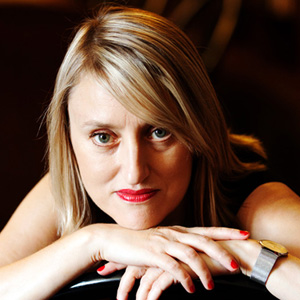
Olga Gershenson
If you’ve never heard of the 1945 Soviet film The Unvanquished, don’t worry: You’re not alone, and Olga Gershenson will talk about why that is at USC Shoah Foundation’s international conference in November.
At the Memory, Media, and Technology: Exploring the Trajectories of Schindler’s List conference Nov. 16-18, Gershenson will participate in the panel discussion “Early Mediations of the Holocaust.” The panel is moderated by Jeffrey Shandler and the other discussants are Rachel Deblinger from UCLA and David Shneer from Colorado University, Boulder.
Gershenson is professor of Judaic and Near Eastern studies at the University of Massachusetts Amherst. Her research interests lie in Russian immigrant cultural production in Israel, gender studies, and cinema of the Holocaust. She has written books on each of these topics: Gesher: Russian Theater in Israel (2005), Ladies and Gents: Public Toilets and Gender (2009) and The Phantom Holocaust: Soviet Cinema and Jewish Catastrophe (2013). She also lectures widely and universities, film festivals and other events around the world.
At the panel, Gershenson will speak about The Unvanquished and its unique identity as an all-but-forgotten Soviet film about the Holocaust. In fact, it is one of the very first films ever made about the Holocaust. It is about the Jews of an unnamed Ukrainian town who are massacred by the Nazis, and was actually filmed in Babi Yar, a ravine in Kiev where real-life mass killings of Jews, Romanis and others were carried out in 1941.
There were several films made in the Soviet Union about the Holocaust, but because the subject matter was so difficult and the political regime often resisted efforts to make these films, they have rarely been seen, Gershenson said. They are “phantoms,” existing but unknown. The Unvanquished is one such phantom.
“The film has of course the limitations of the time and the place of where it was filmed, because it was very difficult to make a film about the Jewish suffering in the Soviet Union in 1944, but the degree to which it was possible, it accomplishes a lot,” Gershenson said.
She said she is interested in USC Shoah Foundation’s inaugural conference because it covers many of the topics she teaches and researches, including Holocaust memory and cinema. She has also seen firsthand how strongly students are affected by Schindler’s List in her Holocaust film classes.
“I am extremely interested in what is happening to Holocaust memory today, specifically through the lens of cinema,” she said. “USC has been so seminal in terms of spearheading research and creating this archive for future research. For these reasons I thought [the conference] would be really interesting.”
Gershenson added that the conference’s focus on the future of Holocaust remembrance through technology and film is crucial, since these mediums are becoming increasingly critical to our modern understanding of the Holocaust.
“We have some people who have firsthand knowledge and memory, but increasingly they are passing away,” she said. “The turn toward the visual is very important.”